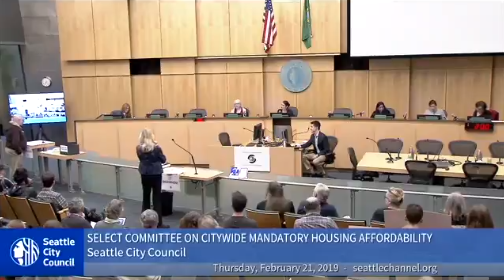#HeadTaxRedux
Hey there #Hashtaggers!
Long time. Hope you’re all doing well. I’m happy that I get this opportunity to present a policy idea that I think has the potential to forge a compromise on the old Head Tax debate.
For a quick refresher for those reading this post 10 years in the future, or those who are just generally unaware: in 2018, the Seattle City Council after years of debate re-implemented the so-called “head tax”, otherwise known as the Employee Hours Tax, which levied a tax per employee hour on businesses big enough for the tax to apply. Many other cities in Washington State – Redmond, Kirkland, among others – levy an Employee Hours Tax on businesses to get revenues for its operations. However, shortly after passing the EHT, the city council suddenly voted to repeal the newly passed head tax after a poll came out that showed a supermajority of Seattleites opposed the tax, and that big businesses would be funding a repeal effort for the November 2018 ballot, threatening the passage of a school levy on the ballot at the same time.
So, that leaves us where we are today – a status quo of doing nothing to get more revenues for building and operating Subsidized Affordable Housing in our city. But I think I have a way forward that can make all parties happy – the Sawanties get to tax Amazon, the job worriers don’t have to fret that we’re taxing low margin businesses out of the city, and affordable housing activists get more funding for new projects, and maybe even civic minded corporations located in the area.
My proposal is to modify the Business & Occupation Tax.
The B&O is a tax levied against business activities within the city. Right now, Seattle collects around 20% of its revenues from that source.
Crucially, though, the B&O tax has varying rates depending on what type of business you run in the city. That means, in theory, that a low margin business like grocery stores or restaurants can be charged a lower rate than, say, a high profit tech company. And indeed, the city in 2009 added a special category just to lure Russell Investments into Downtown by adding a new category for “International Investment Management Services” which until 2017 was taxed at a much lower rate than other businesses. So, the city could add a new category that applies to these tech companies – Amazon, Google, Facebook, the company I work for – for a higher rate that exists now.
I couldn’t find how much the city makes on each category of the B&O tax, but overall in 2018, the city collected $285 million total. The original iteration of the head tax was to generate around $75 million a year, so the city would need to collect around 25% more in revenue from the tax – which certainly is a lot. We can do some back of the envelope math to estimate the rate at which these companies would need to be charged to reach that $75 million.
The Seattle Times reports that there are 60,000 software engineers in Seattle. Let’s say that the total number of employees in tech companies with all job titles are 100,000. If we conservatively assume that each employee generates $100,000 of business activity per year for purposes of the B&O Tax – if we want the tech companies to generate the $75 million the old head tax would have generated – then the
“tech” B&O tax rate would be .750%, up from .427% it is today.
From my very not legal & very uncool research on this topic, it appears that the city can with the vote of the public raise rates above the current State-proscribed maximum with a vote of the public after a vote of the public.
And to note – this policy wouldn’t be novel. Just last November, San Francisco passed Proposition C, which raised a .5% tax on gross receipts for companies earning over $50 million a tax, which is expected to raise $250,000.
The good thing about this approach is that it’s flexible. The city could even add more business types to its B&O tax schedule: law firms, biotech, whatever – to generate even more revenue, and revert it back to the original rate at any time. Companies won’t like it – sure – but we need to get more revenue to build and operate Subsidized Affordable Housing, shelters, and other homeless services that our most vulnerable neighbors desperately need and this is a way to get as much support as possible, especially from the citizens who were icked out on the thought of taxing a business for each person they employ.
As always, I’d love to know what you think about this idea, and how you would implement it if you were on the city council. Tweet me, email me, Facebook – whatever.
Keep on keepin’ on, #Hashtaggeres.



